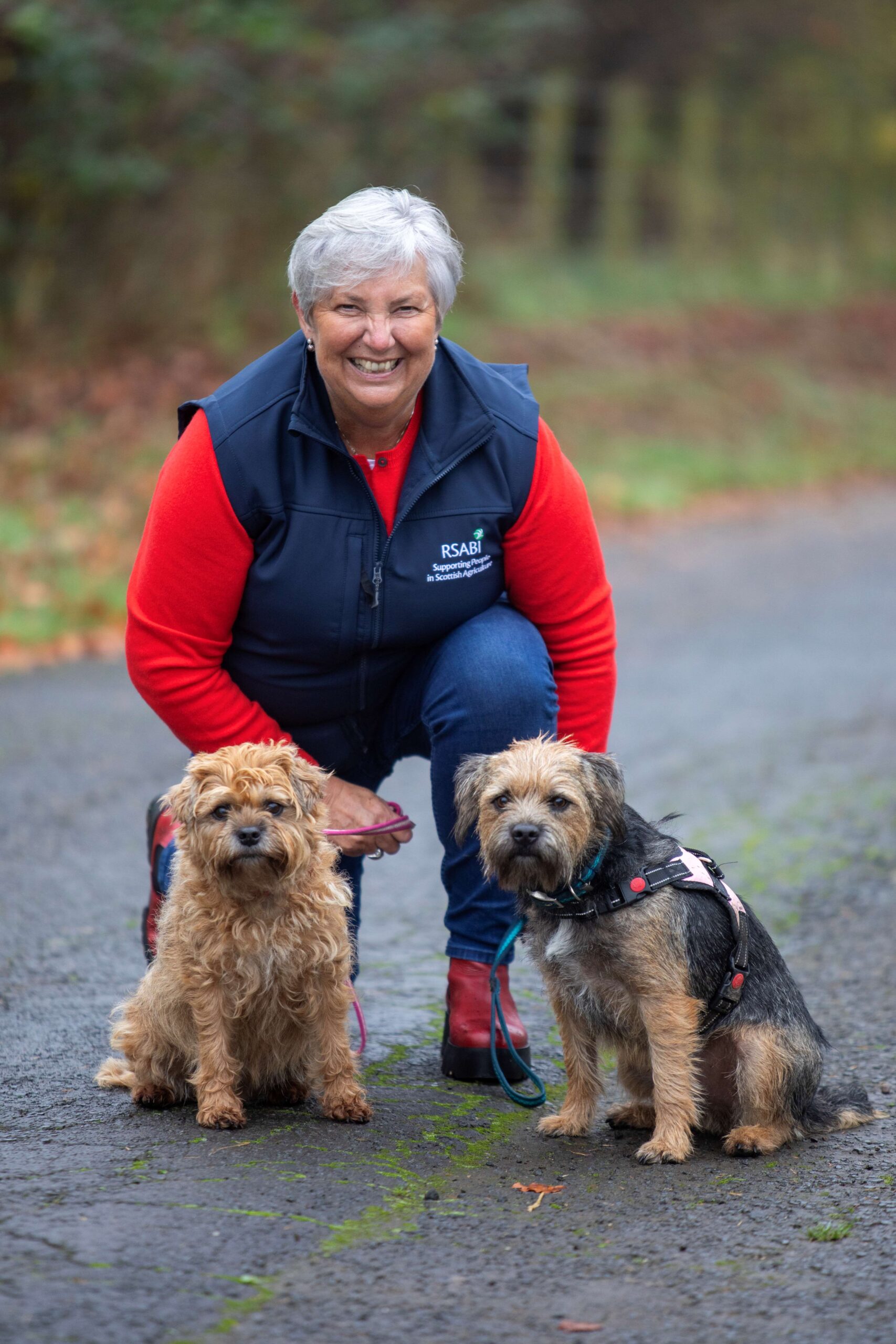Find more funding
There are many other organisations who may be offering funding that will help you, and our handy funding search tool brings them all together.
The campaign comes with a stark reminder that breast cancer is the most common cancer in women over 40, with around 150 people diagnosed every day in the UK. The campaign is also supported by The Big Give, which provide match-funding to amplify this vital health message.
With women in agriculture often balancing multiple responsibilities—from working on the farm to raising families—the Health Hut team at RSABI is urging people to prioritise their own health and wellbeing, particularly during the busy lambing and spring work period.
Fife-based farmer Carole Brunton (pictured above) bravely shared her story with RSABI to inspire and encourage other farming women to act quickly, regardless of how busy life is, if they have any health concerns.
“Please don’t neglect your health – you have such an important part to play in the farm business and family. Very often you are the gel that keeps the whole thing together, so it’s vital for women to get out there and look after themselves,” she said.
“It takes just 10 minutes to go and have a mammogram, but too many people don’t take advantage of this service which is routinely offered to women over 50.”
Carole discovered a lump a few years ago at age 49—just before she would have been invited for routine breast screening. Following her cancer diagnosis on 1st October, she underwent a mastectomy and was given the all-clear before the end of December. Carole is encouraging other women in rural communities not to delay seeking help and to speak openly about any health concerns.
“If you find a lump, or anything you are worried about, please phone your doctor – they are absolutely brilliant. I can’t praise the NHS enough for what they did for me. We’re so lucky that we’ve got that service – so use it.”

In a second video, RSABI team member Mary Anne McWilliam shared her experience of being diagnosed in October 2015. She acted immediately when she discovered a lump. Her GP referred her to the Dumfries and Galloway Royal Infirmary where she went on to receive a full diagnosis within a day of undergoing various tests, thanks to the hospital’s “one-stop” approach.
“My husband Alastair was with me when I got the call. He put his arm around me because he knew then that we were facing something going forward,” Mary Anne recalled.
“After I met the consultant, I was given a date only two weeks later for surgery which was followed by chemotherapy and radiotherapy. My friends and family supported me through every step. A problem shared is a problem halved—and bottling it up doesn’t do you any good.”
Mary Anne is now giving back by volunteering monthly at Stranraer Cancer Drop-in Centre where she was supported her through her treatment, and she continues to advocate for early detection.
“I appreciate that there are busy times of the year on farms and people might be inclined to put off going to see a GP but it’s imperative that you go as soon as you notice anything unusual and get whatever treatment is required, then the chances are much greater that you’re going to have a non-recurrence and completely recover from it.”
The RSABI campaign highlights that while breast cancer is more common in women over 50, it can affect people of any age and gender. Around 390 men are diagnosed with breast cancer in the UK each year.
Early detection of breast cancer is paramount to allow early treatment and good life outcomes.
Common signs of breast cancer include:
Lifestyle factors such as alcohol consumption, smoking and being overweight can increase risk, while age and genetics also play a role.
Breast Cancer UK suggest checking your breasts monthly. Doing this can help you become familiar with the normal look and feel of your breasts or chest, making it easier to identify any changes. If you do notice signs of breast cancer it is important to make an appointment with your GP.
Further advice and resources are available at:
RSABI offers free practical, financial, and emotional support including counselling services, delivered quickly after receiving the initial enquiry. Its free, confidential support service is available 24 hours a day, every day of the year, by calling 0808 1234 555 or through a confidential webchat service, available on RSABI’s website www.rsabi.org.uk.
There are many other organisations who may be offering funding that will help you, and our handy funding search tool brings them all together.